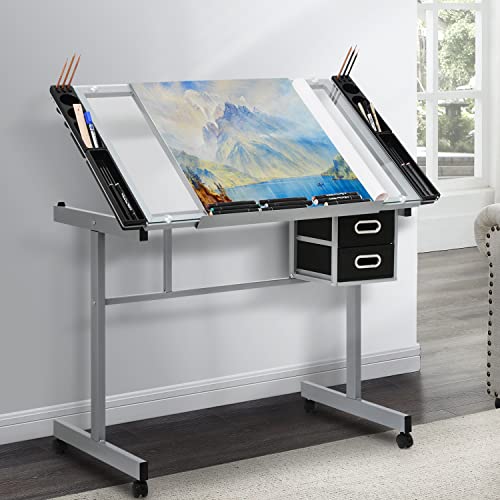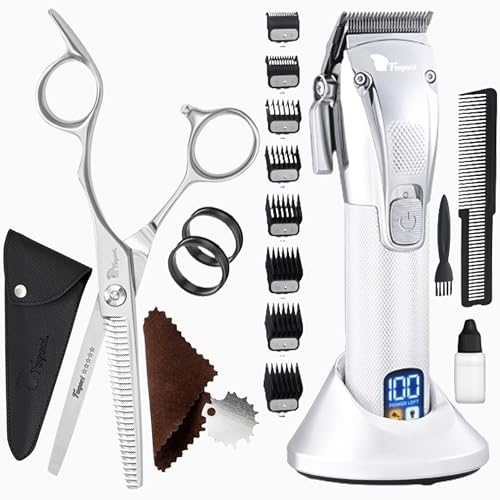Discover how the benefits of CRM software can transform your small business. Learn the benefits of using a CRM system to improve customer relationships and boost marketing campaigns.
Unlocking the Benefits of CRM Software Are you a small business owner finding it hard to meet customer needs and handle your growing database? CRM software for small businesses might be the solution you’ve been looking for. In today’s competitive market, it’s key to improve customer relationships and make operations smoother. That’s where CRM tools shine.
As a small business owner myself, I’ve seen how CRM software can change the game. It’s not just for managing contacts anymore. Modern CRM systems have many features to help your business grow, from sales automation to customer support and analytics.

The perks of CRM for small businesses are many. It keeps your customer data in one place, boosts relationships, and makes processes smoother. With the right CRM tool, you can offer tailored interactions, better customer support, and build lasting loyalty. Plus, it’s now more affordable, letting small businesses compete with big ones.
Key Takeaways
- CRM software centralizes customer data management
- It enhances customer relationships through personalized interactions
- CRM tools improve efficiency and productivity
- Modern CRM systems are now affordable for small businesses
- CRM software helps in building long-term customer loyalty
Introduction to CRM Software for Small Businesses
In today’s fast-paced business world, a CRM system can be a real game-changer for small businesses. CRM software is not just for big companies anymore. It’s now a key tool for all businesses to improve operations and grow.
What is CRM software?
CRM software is a powerful tool for managing customer interactions and tracking sales. It’s like a digital assistant that keeps all your customer data in one spot. This makes it easy to access and analyze.
Why small businesses need CRM
Small businesses often face challenges with limited resources and time. CRM software helps by organizing customer info, improving communication, and making data-driven decisions. It also automates tasks, saving time.
- Organize customer information
- Improve communication
- Make data-driven decisions
- Automate repetitive tasks
Using CRM software lets you focus on growing your business and serving your customers better.
Evolution of CRM technology
CRM technology has evolved a lot. It used to be clunky and expensive. Now, cloud-based CRM is affordable, easy to use, and packed with features. Modern systems use AI and machine learning for predictive analytics and automation.
This can greatly improve your marketing campaigns and sales efforts.
| CRM Feature | Past | Present |
|---|---|---|
| Accessibility | On-premises only | Cloud-based, mobile access |
| Cost | High upfront investment | Affordable monthly subscriptions |
| Functionality | Basic contact management | AI-powered analytics, automation |
With these advancements, now is the best time for small businesses to use CRM technology and unlock its full potential.
Key Features of CRM Software for Small Businesses
CRM software has many features that can change how small businesses work. The benefits of CRM software are more than just managing contacts. Let’s look at the main advantages of CRM for your business.
Contact management is at the core of any CRM system. It lets you keep and organize customer info well. This is key for small businesses wanting to connect deeply with their clients.
Sales pipeline tracking is also very important. It lets you see your sales process and manage leads better. This tool is great for small businesses wanting to increase their sales.
Email integration changes how you communicate. It makes your emails easier to manage and keeps all customer talks in one spot. This is especially helpful for businesses that use email a lot.
Reporting tools give you insights into how your business is doing. They help you make choices based on data, which is vital for small businesses growing and competing.
| Feature | Benefit |
|---|---|
| Contact Management | Organized customer information |
| Sales Pipeline Tracking | Improved lead management |
| Email Integration | Streamlined communication |
| Reporting Tools | Data-driven decision making |
Using CRM for your business does more than just organize data. It opens up chances for growth and better efficiency. The benefits of CRM software touch every part of your business, from sales to customer service.
Enhancing Customer Relationships with CRM Tools
CRM software for small businesses brings many benefits. It changes how companies talk to their clients. This leads to happier and more loyal customers.
Personalized Customer Interactions
CRM systems give a full view of customer data. This lets businesses meet each client’s special needs. I’ve seen how this makes interactions more meaningful and boosts satisfaction.
Improved Customer Support
CRM tools make customer support better by combining ticket systems and knowledge bases. This makes solving problems faster and more efficient. Businesses can better meet customer needs, making everyone happier.
Building Long-Term Customer Loyalty
CRM is key in keeping customers loyal. It tracks satisfaction, starts loyalty programs, and uses data to meet needs. This keeps customers coming back and even makes them advocates for the brand.
| CRM Feature | Business Impact | Customer Benefit |
|---|---|---|
| 360-degree customer view | Tailored marketing strategies | Personalized experiences |
| Integrated ticket management | Faster issue resolution | Improved support experience |
| Data-driven insights | Proactive customer engagement | Increased satisfaction and loyalty |
Small businesses can build strong customer relationships with CRM tools. This drives growth and success in today’s market.
Streamlining Sales Processes through CRM Integration
I’ve seen how a small business CRM changes sales and marketing. It makes using customer data and sales processes much better. Let’s look at how CRM software makes things more efficient and keeps customers coming back.

CRM integration makes getting leads easier, tracks sales, and handles follow-ups. This saves time for sales teams to focus on making deals. CRM users say they’re more productive and successful.
Seeing sales performance in real-time is a big advantage. Managers can spot problems and fix strategies fast. This leads to smarter decisions and better customer relationships.
| CRM Benefits | Impact |
|---|---|
| Improved Customer Relationships | Increased Customer Lifetime Value |
| Enhanced Productivity | Higher Sales Success Rates |
| Advanced Analytics | Better Strategic Planning |
| Automated Tasks | More Time for Actual Selling |
The best CRM solutions work well with other business tools. This makes using customer info across platforms better. For small businesses, it means keeping customers and staying ahead in the market.
“CRM systems streamline sales processes by automation of marketing, sales, and service operations, ultimately enhancing customer touchpoints and experiences.”
Choosing the right CRM can help keep customers. With personalized service, businesses see happier customers. A small business CRM is key for growth and success today.
Unlocking the Benefits of CRM Software for Small Businesses
CRM software has changed how small businesses handle customer relationships and make things run smoother. I’ve seen how a CRM can change business processes. It makes things more efficient and improves how customers feel.
Increased Efficiency and Productivity
A CRM lets business owners do less repetitive work, giving them more time for important tasks. It keeps all customer data in one place, making it easy to find what you need. This makes decisions faster and customer support better. It’s key for small businesses to keep up in today’s fast world.
Better Data Management and Analysis
Managing and understanding customer data is easy with a CRM. It tracks customer interactions, sales, and support issues. This helps business owners make smart choices, leading to better marketing and stronger customer ties.
Enhanced Collaboration Across Teams
CRM software helps teams work together better. Sales, marketing, and support can share info and work on projects together. This makes sure customers have a consistent experience no matter who they talk to.
“Implementing a CRM system has been a game-changer for our small business. It’s like having an extra team member dedicated to organizing and analyzing our customer data.”
Small businesses can really improve how they work and connect with customers by using CRM software. It’s also important to keep customer data safe from cyber threats. This means taking steps to protect the data in CRM systems.
| CRM Benefit | Impact on Small Businesses |
|---|---|
| Automated Tasks | 20% increase in productivity |
| Centralized Data | 30% faster decision-making |
| Improved Collaboration | 25% better team efficiency |
| Enhanced Customer Insights | 15% increase in customer retention |

With up to 40 hours of battery life, Beats Solo3 Wireless is your perfect everyday headphone
Compatible with iOS and Android devices
Choosing the Right CRM Solution for Your Small Business
Finding the right CRM solution is key to your business’s success. It’s not simple, but it’s essential for strong customer relationships. Let’s explore what you should think about.
Start by figuring out what you need. What does your marketing team require? How can a CRM help your small business? Consider your budget and future growth. A good CRM should grow with you.
The CRM needs to be easy to use. Your team needs to get it fast to better serve customers. Look for simple interfaces and mobile access. This keeps your business connected everywhere.
Integration is also crucial. Your CRM should work well with your current tools. This makes your workflow smoother and more efficient.
- Evaluate different vendors
- Read customer reviews
- Take advantage of free trials
These steps help you pick a CRM that fits your goals. The right CRM can change how you handle customer relationships.
| Feature | Importance |
|---|---|
| Ease of Use | High |
| Scalability | Medium |
| Integration | High |
| Mobile Access | Medium |
By choosing your CRM wisely, you’re setting your small business up for success. It’s a smart investment that boosts customer relationships and business growth.
Implementing CRM Software: Best Practices for Small Businesses
As a small business owner, I know how important it is to use CRM software right. It helps us work better and connect with our customers. Here are some tips for a smooth setup.
Planning and Preparation
First, I plan carefully. I look at our current ways of working and see where CRM can help most. I also make sure our data is clean and ready to go.
Employee Training and Adoption
For CRM to really help, I focus on training my team. I teach them how to use it and why it matters. This makes sure everyone uses it well.
Continuous Improvement and Optimization
Using CRM is an ongoing job. I check how my team uses it and listen to their feedback. This helps us keep improving and make sure the software fits our needs.
| Implementation Stage | Key Actions | Benefits |
|---|---|---|
| Planning | Process mapping, data preparation | Smooth transition, clear goals |
| Training | Hands-on sessions, role-specific guidance | Higher adoption rates, efficient use |
| Optimization | Regular reviews, feedback collection | Improved efficiency, ROI maximization |
By sticking to these tips, I make sure my business gets the best from our CRM. It becomes a key part of how we work every day. This helps us serve our customers better and grow our business.
Overcoming Common Challenges in CRM Adoption
Small companies often face hurdles when adopting CRM technology. I’ve seen how CRM can streamline operations, but adoption isn’t always easy. Let’s look at some common challenges and solutions.

Resistance to change is a big obstacle. Many employees worry that new software will disrupt their workflow. To overcome this, it’s important to clearly explain how CRM benefits everyone. Showing how CRM improves efficiency can motivate the team.
Data quality issues are another challenge. Poor data makes CRM less effective. It’s crucial to have data governance policies in place. As a business grows, keeping data clean is key for making good decisions.
Integration complexities can also slow adoption. It’s important to ensure the CRM system works well with existing tools. Seamless integration boosts productivity and encourages use.
Training: Key to Successful Adoption
Proper training is essential for CRM success. Without enough training, users are less likely to use CRM systems fully. This leads to poor data and system usage.
| Training Impact | Percentage |
|---|---|
| Increased user confidence | 85% |
| Improved data quality | 70% |
| Higher system utilization | 60% |
Role-based training sessions help users see how CRM can improve their work. Continuous support and feedback loops make the CRM better for real-world needs.
By tackling these challenges, small companies can successfully adopt CRM. This way, they can enjoy its benefits as their business grows.
Conclusion
I’ve looked into how CRM software is essential for every business. It helps make operations smoother and strengthens customer ties. CRM systems improve data handling and team work, changing how businesses run.
For small businesses, CRM software is a game-changer. It manages customer interactions, makes sales smoother, and offers insights. The right CRM can boost efficiency, productivity, and customer happiness.
As tech advances, CRM’s role in business success will grow. It will give small businesses the tools to stay ahead in a changing market. Success depends on choosing the right CRM, setting it up well, and keeping it updated.
FAQ
What is CRM software?
CRM software helps manage customer interactions and sales. It organizes customer data and improves communication. This leads to better decision-making.
Why do small businesses need CRM?
Small businesses use CRM to manage customer data and improve relationships. It helps personalize interactions and build loyalty. This makes business processes more efficient.
How has CRM technology evolved for small businesses?
CRM technology has moved from on-premises to cloud-based solutions. This makes it more affordable and accessible. Today’s CRM uses AI for better analytics and automation.
What are the key features of CRM software for small businesses?
Key features include managing contacts and tracking sales. It also integrates emails and offers reporting tools. Advanced features include marketing automation and social media integration.
How can CRM tools help enhance customer relationships?
CRM tools offer a 360-degree view of customer data. This leads to personalized interactions. They also improve support and help build loyalty through insights.
How does CRM integration streamline sales processes?
CRM integration automates lead generation and tracks sales. It manages follow-ups and provides real-time sales performance data. This helps identify and fix bottlenecks.
What are the benefits of using CRM software for small businesses?
CRM software automates tasks and centralizes customer data. It leads to better data management and analysis. This results in informed decisions and targeted marketing.
How do I choose the right CRM solution for my small business?
Consider your business needs, budget, and growth plans when choosing CRM. Look at ease of use, scalability, and integration capabilities. Read reviews and try free trials.
What are the best practices for implementing CRM software in a small business?
Plan and prepare well, including data migration and process mapping. Train employees and continuously improve. Regularly review CRM usage and gather feedback.
What are some common challenges in CRM adoption for small businesses?
Challenges include resistance to change and data quality issues. Address user concerns and ensure data governance. Make sure it integrates well with existing systems.













No responses yet